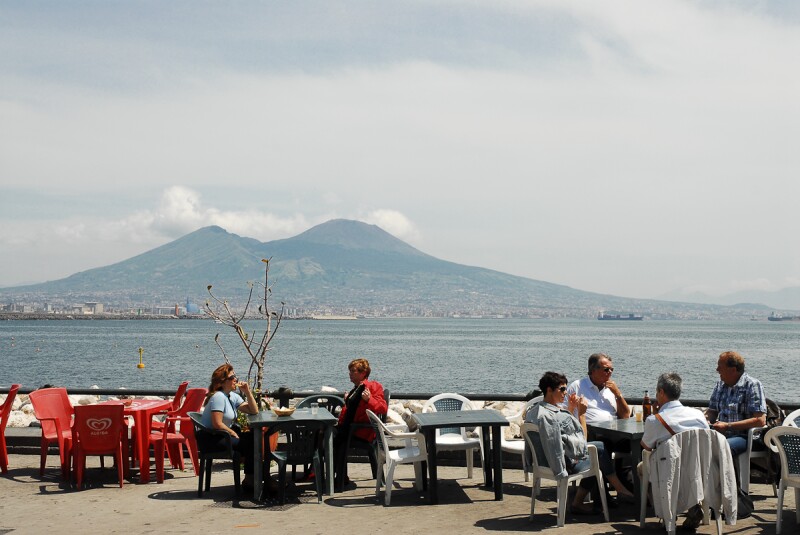Overtourism is one of the biggest issues facing the travel industry today. Too many people in popular places is not good for travelers—it’s simply not fun to shuffle shoulder-to-shoulder through the Colosseum in July—and it’s not sustainable for destinations, which struggle with a range of problems, including traffic, pollution, and strained infrastructure.
The world is starting to respond. Prince Harry recently announced his own initiative to make travel a force for good. And earlier this year, Travel Leaders Group (which represents 52,000 travel advisors across multiple companies) announced its initiative to find overtourism solutions.
Travel Leaders Group (TLG) is working with destinations, supplier partners, and travel advisors, as well as with graduate students at NYU, who are conducting research as part of their graduate school course to define overtourism and its causes, identify solutions that are working for destinations, and survey travel advisors. TLG staff members meet weekly with students to design surveys and analyze data. In the first phase, students surveyed destination marketing partners and travel advisors to get a better understanding of overtourism. The second phase will include a consumer survey.
“We believe the travel agency community has a major role to play in identifying the right experiences and in matching travelers to the experience they are seeking,” says Ninan Chacko, CEO of Travel Leaders Group.
We talked to Ninan about this initiative and how it might change the way advisors do business.
What did the initial research phase with NYU find?
It found that tourism marketing has traditionally been focused on driving volume and that the success of tourism has been measured by the number of arrivals.
Tourism has tremendous economic benefits to communities, but it also has negative impacts. More and more, the industry is looking to balance the needs of tourists with the needs of the local community and the environment. The NYU team developed an overtourism index for destinations that assesses whether or not they have an overtourism issue.
In the next phase of the project, we will look for solutions and recommendations for our advisors, as well as work with destinations to develop programs around less-traveled areas or seasons.
What exactly will Travel Leaders Group focus on?
Our goal is to develop solutions and programs around these key principles:
- Seasons: Work with destinations to identify and market shoulder and off-peak seasons.
- Destinations: Identify undiscovered destinations or less-traveled destinations.
- Itineraries: Develop innovative itineraries to lesser-known sights and attractions.
- Experiences: Focus on curating highly personalized experiences that are meaningful to travelers and the communities they visit.
- Advice and expertise: Provide travel advisors with educational and marketing support to redirect travelers to new options.
What are you doing with destination partners now?
Our partnership with Italy is a great example. Travel Leaders Group partnered with the Italian National Tourist Board to create “off-the-beaten-path” itineraries to less-traveled parts of Italy. These itineraries help spread the economic benefits of tourism to different regions of the country.
For example, southern Italy and Sicily have magnificent architecture, world-class food and wine, beautiful artisan works, and stunning ocean vistas. Travelers can visit 7,000-year-old caves and Greco-Roman historical sites.
Travel Leaders Group works closely with tour operators such as G Adventures and Abercrombie & Kent, who are proactive with sustainable tourism. Tour operators like Globus have developed lines of tours such as Globus’ Undiscovered Tours of Italy and Undiscovered Tours of Great Britain.
How are advisors helping now to make travel better for their clients—and for overwhelmed destinations?
Laura Freeman is an Italy specialist with Tzell Travel Group. She enjoys the history of the country and integrates that into her Italy travel planning. She even researched the history of pizza and developed a customized “pizza crawl” tour of Naples to find the best local and authentic places.

Slowing down in Naples
Photo by Francesco Lastrucci
Our advisors also recommend secondary destinations in popular places. In Portugal, go beyond Lisbon and explore the Douro Valley, Sintra, Nazaré, and Porto. In Australia, connect with the locals and nature in places like Kangaroo Island, Kakadu National Park, Daintree Rainforest, and Ningaloo Marine Park, not just the well-traveled path of Sydney, Uluru, and the Great Barrier Reef.
By developing innovative itineraries, advisors appeal to their clients’ special interests while patronizing local establishments, artisans, and institutions. By encouraging their clients to visit off-season, advisors help more evenly disperse the numbers of tourists in the destination.
>> Next: What Annoys You About Luxury Hotels?











